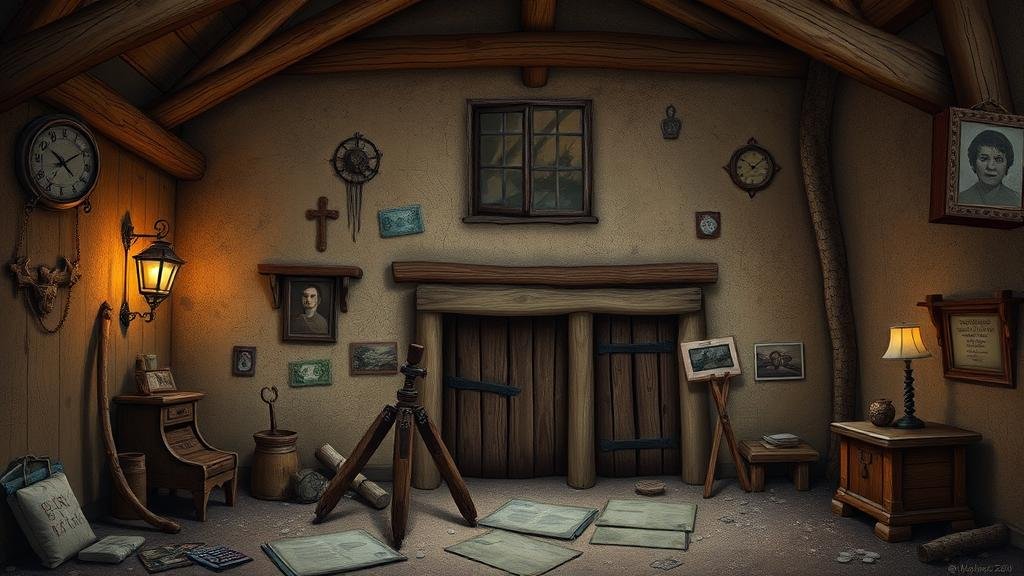Exploring Deserted Inns for Forgotten Currency Caches
Exploring Deserted Inns for Forgotten Currency Caches
Deserted inns, often steeped in history and untold stories, represent a unique intersection of nostalgia and adventure. These abandoned structures, remnants of a bygone era, beckon explorers and treasure hunters alike, offering potential bounty in the form of forgotten currency caches. This article examines the allure of such locations, the historical context behind them, and practical insights for those interested in embarking on this captivating search.
The Historical Context of Deserted Inns
Throughout history, inns served as crucial waystations for travelers, merchants, and adventurers. In the 19th century, for example, the proliferation of stagecoaches and railroads led to a vibrant hospitality industry, with inns flourishing along major routes. But, with the advent of the automobile and changing travel patterns, many of these establishments fell into disrepair and were ultimately abandoned.
Deserted inns often conceal treasures of the past. Historical records indicate that innkeepers sometimes resorted to hiding their wealth in the form of cash or valuables to protect against theft or economic instability. For example, during times of civil unrest, innkeepers in war-torn regions concealed their earnings in nearby outbuildings or the walls of their establishments. This secrecy has led to the potential discovery of forgotten currency caches, which continue to captivate modern treasure-seekers.
Identifying Potential Locations
The first step in exploring deserted inns for currency caches is identifying suitable locations. Not all abandoned inns will yield treasures, and a strategic approach is vital.
- Historical Significance: Focus on inns that have historical relevance, particularly those that were known for notable events or famous patrons. For example, the Old Royal Oak in New Hampshire has an extensive history dating back to the Revolutionary War.
- Geographical Features: Locations near historic trade routes, railway lines, or major thoroughfares often have a higher likelihood of attracting travelers, and consequently, more significant revenues to conceal.
- Local Folklore: Engage with local historians or folklore enthusiasts. Legends often point to hidden treasures in abandoned sites, providing potential insight into places worth exploring.
Legal Considerations and Ethical Concerns
Before embarking on any exploratory adventure, it is crucial to consider legal and ethical implications. Trespassing laws vary by location; ensure you research property ownership and obtain necessary permissions. Abandoned sites may also be protected by historical preservation laws, making unauthorized exploration not just illegal but potentially damaging to cultural heritage.
Plus, ethical treasure hunting practices advocate for respect toward any findings. If a currency cache is discovered, individuals should assess the possibility of returning items to rightful owners or donating them to local historical societies, adhering to principles of responsible advocacy for history.
Techniques for Successful Exploration
Effective exploration necessitates a combination of traditional methods and modern technology. Here are key techniques to maximize the chances of discovery:
- Research and Planning: Prior to exploring, conduct thorough research on the target inn’s history, layout, and previous owners. Resources like local archives, historical societies, or even online databases can be invaluable in this regard.
- Use of Technology: Equip yourself with tools such as metal detectors, ground-penetrating radar, or drones. e technologies can help identify potential cache locations without extensive disturbances to the site.
- Team Collaboration: Engaging with a group of fellow enthusiasts can enhance both safety and creativity during explorations. Diverse skills–ranging from archaeological expertise to practical mechanics–can be beneficial.
Real-World Case Studies
Numerous examples illustrate the themes discussed herein. One notable instance involved the discovery of a hidden cache at the Old Stone Inn in Pennsylvania, which had been closed for over three decades. A group of local explorers, equipped with a metal detector and historical maps, uncovered approximately $10,000 in old bills and coins behind a false wall in the cellar. This discovery not only provided financial reward but also reaffirmed the rich history of the location.
Another intriguing case occurred in the British countryside, wherein investigators exploring an abandoned inn stumbled upon a stash of rare Victorian currency. This find sparked renewed interest in the local community regarding the historical significance of the inn itself, leading to restoration efforts and increased tourism.
Actionable Takeaways
For individuals intrigued by the adventure of exploring deserted inns for forgotten currency caches, here are actionable takeaways:
- Initiate research on local history and identify potential inns with significant pasts.
- Respect legal and ethical guidelines by obtaining permissions and considering the implications of your discoveries.
- Use technology in conjunction with traditional methodologies to enhance the effectiveness of explorations.
- Engage with a community, fostering collaboration and shared knowledge among treasure hunters and historians alike.
To wrap up, the exploration of deserted inns presents an exhilarating blend of adventure, history, and potential discovery. While challenges such as legalities and ethical considerations exist, the opportunities for unearthing forgotten currency caches add a rich layer to the pursuit of history.



